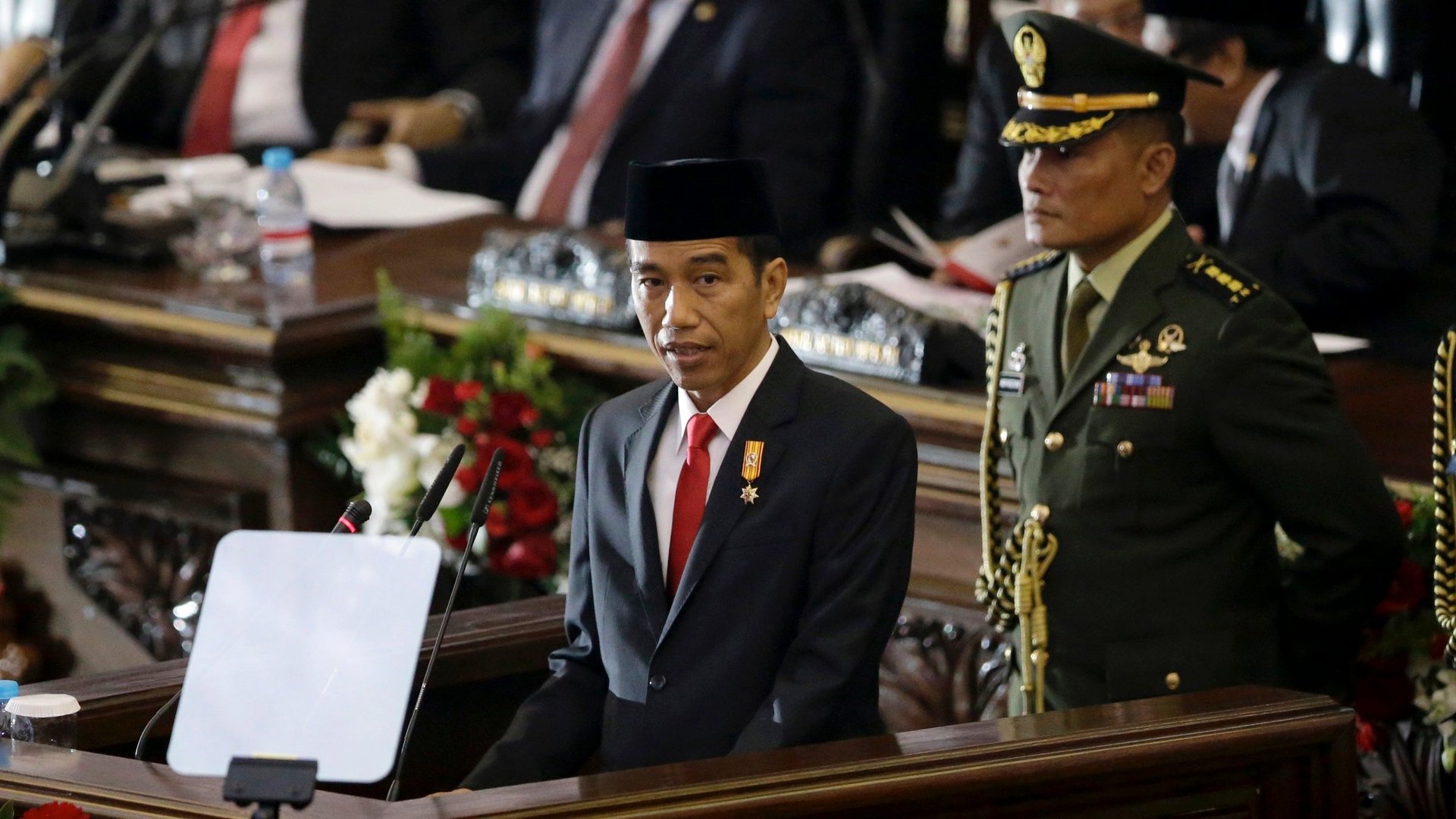Southeast Asia put off reforms while riding China’s coattails. Now what?
When Joko Widodo became president of Indonesia in October 2014, he faced slowing economic growth, poor infrastructure, and a wilting manufacturing base. Another key challenge would await him: a faltering China.


When Joko Widodo became president of Indonesia in October 2014, he faced slowing economic growth, poor infrastructure, and a wilting manufacturing base. Another key challenge would await him: a faltering China.
Like other emerging economies in Southeast Asia and elsewhere, Indonesia has long been riding the coattails of a surging China. As China’s GDP grew by 10% or years, its demand for commodities and manufactured goods boosted the GDP of many nations. In Southeast Asia it also hid weaknesses in the flawed growth models and financial systems, and it took pressure off of politicians to push reforms.
“The 10% made it unnecessary to rush things or to rock the boat,” Ooi Kee Beng, deputy director of the ISEAS–Yusof Ishak Institute think tank in Singapore, tells Quartz. Southeast Asian governments “did not feel they had to. And politicians are rather short-sighted people, anyway. The promise was China’s 10% would never go away. And then it was down to 8%, and it was going to be 8% forever.”
When Widodo took office, he knew Indonesia had an unhealthy reliance on the oil, coal, and other natural resources for which China seemed to have an insatiable appetite. Sure enough, with demand from China slowing, Indonesia’s exports in July fell 19.2% from a year earlier, to $11.4 billion, and 15.5% from a month earlier (paywall). Coal exports dropped 22.2% in value and crude palm oil fell 7.6% from June. After Beijing devalued the yuan on Aug. 11 in an attempt to boost exports and revive China’s economy, stocks in Indonesia quickly fell to 17-month lows, as a lower yuan was seen as a threat to the nation’s exports.
And with concerns about China’s economic health deepening, Indonesia’s currency—like those of other emerging markets—fell sharply, too, hitting 17-year lows within days of China’s decision to let the yuan fall.
Meanwhile, despite reshuffling his cabinet last week, Widodo has run up against Indonesia’s political establishment in his efforts to root out corruption and truly transform his nation’s economy into one that’s more flexible and diversified, bolstered by stronger infrastructure including ports, roads, and rail.
But at least Indonesia has been spared the kind of additional stresses suffered by its neighbors. In Bangkok a bomb set off last week at a shrine near malls and hotels appeared designed to hurt tourism and the economy. It also exposed the frailty of Southeast Asia’s second-largest economy, where consumer sentiment has fallen for six straight months and airlines and fishing are under threat—signs of the questionable economic policies of the Thai military junta that seized control in May 2014.
Nearby Malaysia has been hounded by doubts over its leadership, with prime minister Najib Razak under growing pressure stemming from allegations of graft and financial mismanagement at debt-laden state fund 1MDB.
What Indonesia cannot insulate itself from is the souring view of emerging economies in general now that China’s economic slowdown has piqued concerns. In a recent Project Syndicate post on the “great emerging-markets bubble,” Bill Emmott, former editor in chief of The Economist, noted:
Although countries can ride waves of growth and exploit commodity cycles despite having dysfunctional political institutions, the real test comes when times turn less favorable and a country needs to change course.
Expect Widodo and other leaders in emerging economies to start changing course now.